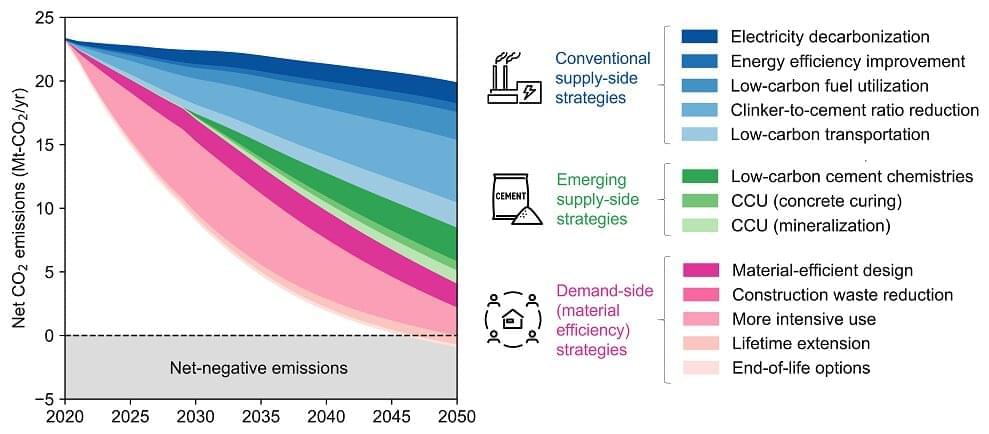The concrete industry is just one of many looking at new manufacturing methods to reduce its carbon footprint. These efforts are essential to fulfilling the Paris Agreement, which asks each of its signees to achieve a net-zero carbon economy by 2050. However, a new study from researchers in Japan and Belgium and focusing exclusively on Japan concludes that improved manufacturing technologies will only get the industry within 80% of its goal. Using a dynamic material flows analysis model, the study claim that the other 20% will have to come from changes in how concrete is consumed and managed, putting expectations on the buyer as well as the seller.
Electric cars, fluorescent lights, water-saving shower heads, these are all examples of efforts to lower our carbon footprint. However, the energy savings are made from the supply side, with companies developing new technologies that reduce the amount of energy consumed for the same amount of use. Notably, they put little demand on the user, who can use the product no differently than before.
The same holds true for concrete, the most consumed human-made material in the world. Many studies have shown the potential for making the concrete industry more energy efficient through esoteric efforts like “clinker-to-cement ratio reduction,” “cement substitution with alternative binders,” and “carbon capture and utilization.” The problem, explains Dr. Takuma Watari, a researcher at the Japan National Institute for Environmental Studies and lead of the new study, is that supply-side efforts are not enough if nations are serious about achieving net-zero carbon emissions.
